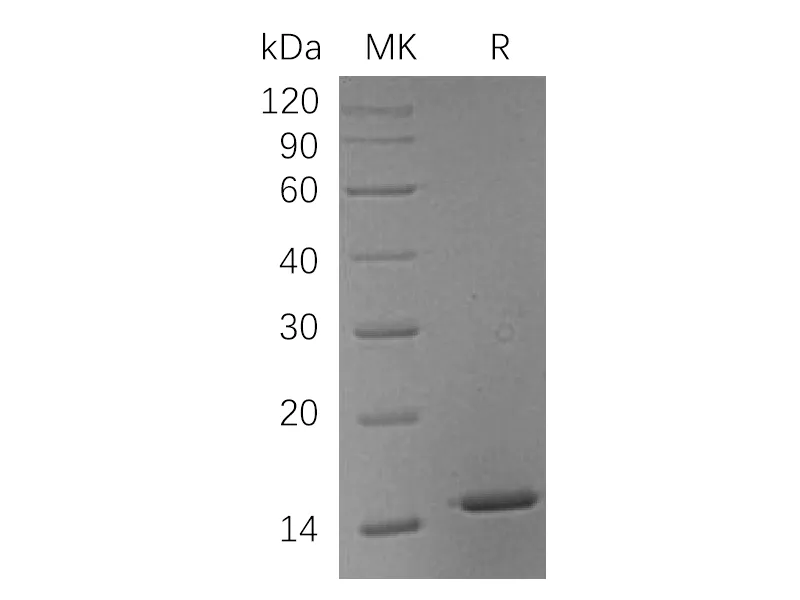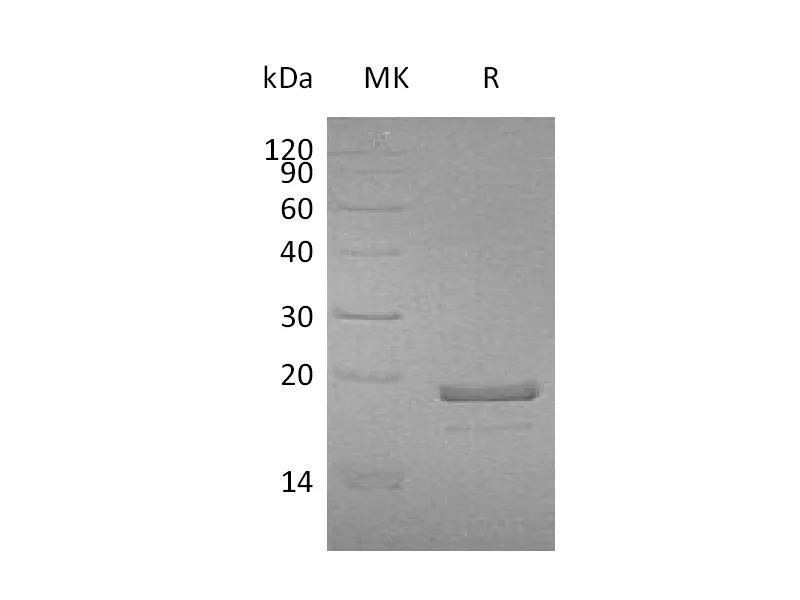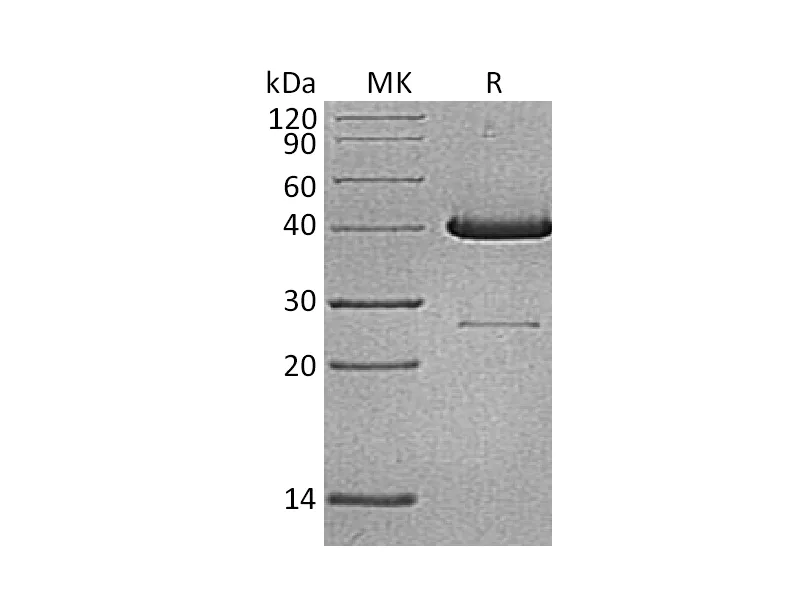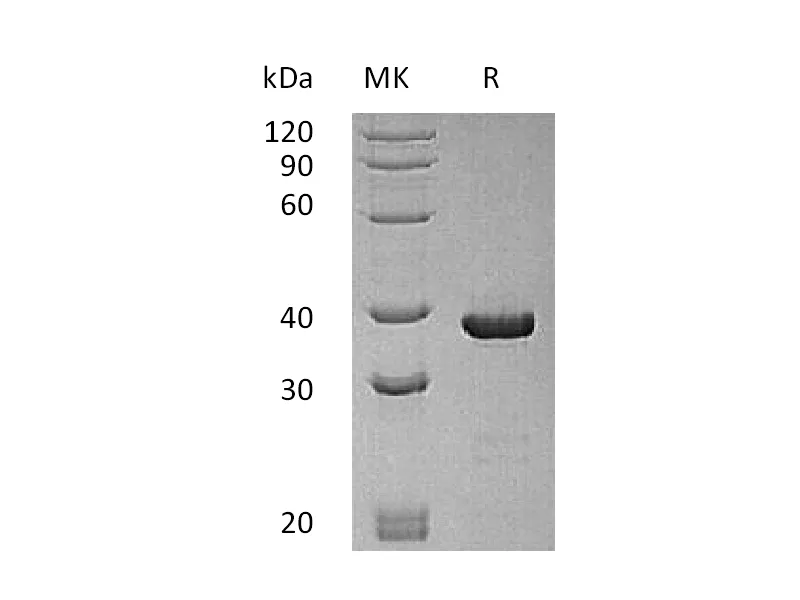| 产品名称 |
Recombinant Mouse RANK (C-6His) |
| 英文名称 |
RANK/TNFRSF11A/CD265 |
| 纯度 |
Greater than 95% as determined by reducing SDS-PAGE |
| 内毒素 |
<1 EU/µg as determined by LAL test. |
| 蛋白构建 |
Recombinant Mouse Receptor Activator of NF-kappa B is produced by our Mammalian expression system and the target gene encoding Val31-Ser214 is expressed with a 6His tag at the C-terminus. |
| Accession |
O35305 |
| 表达宿主 |
Human Cells |
| 种属 |
Mouse |
| 预测分子量 |
21.3 KDa |
| 制剂 |
Lyophilized from a 0.2 μm filtered solution of PBS, pH 7.4. |
| 运输方式 |
The product is shipped at ambient temperature.Upon receipt, store it immediately at the temperature listed below. |
| 稳定性&储存 |
Store at ≤-70°C, stable for 6 months after receipt.Store at ≤-70°C, stable for 3 months under sterile conditions after opening. Please minimize freeze-thaw cycles. |
| 复溶 |
Always centrifuge tubes before opening.Do not mix by vortex or pipetting.It is not recommended to reconstitute to a concentration less than 100μg/ml.Dissolve the lyophilized protein in distilled water.Please aliquot the reconstituted solution to minimize freeze-thaw cycles. |
| 分子别名 |
| Receptor activator of NF-KB; tumor necrosis factor receptor superfamily member 11A; TRANCE receptor; Osteoclast differentiation factor receptor;NFKB activator; TRANCER; CD265; TNFRSF11A; TRANCE R; CD265 antigen; ODFR |
| 背景介绍 |
| Receptor activator of NF-κB(RANK,TNFRSF11A) belongs to one member of tumor necrosis factor receptor family.It is a receptor for TNFSF11/RANKL/TRANCE/OPGL. This gene encodes a type 1 membrane protein with a 30 amino acids (aa) signal peptide, 184 aa extracellular region , a 20 aa transmembrane domain and a 391 aa cytoplasmic region. Human and murine RANK share 81% aa identity in their extracellular domains. RANK is ubiquitous highly expressed in trabecular bone, thymus, small intestine, lung, brain and kidney, but weakly expressed in spleen and bone marrow. After binding its ligand RANKL, RANK can activate signaling pathways such as NF-κB, JNK, ERK, p38, and Akt/PKB, through TRAF protein phosphorylation. RANK/TNFRSF11A signaling is largely considered to be growth promoting and apoptosis reducing such as the effects observed in osteoclasts. RANK/TNFRSF11A was also found to be involved in the regulation of interactions between T-cells and dendritic cells. |
注意事项
本司产品仅用于科研,不用于临床诊断和治疗




